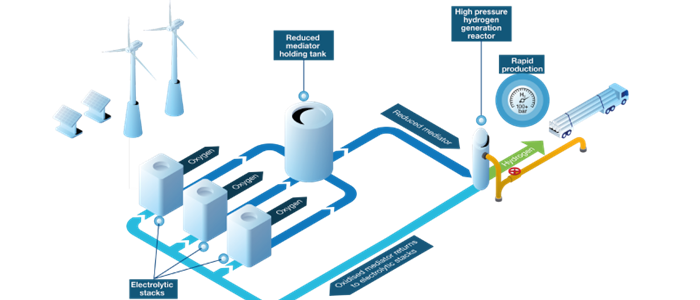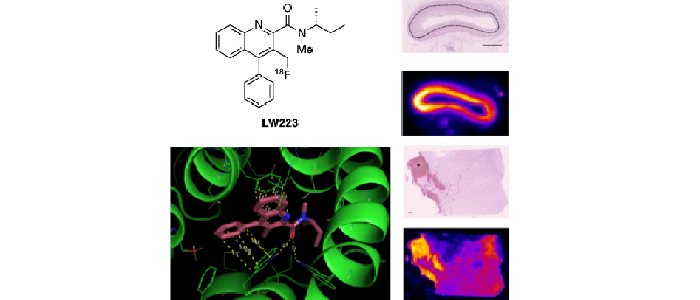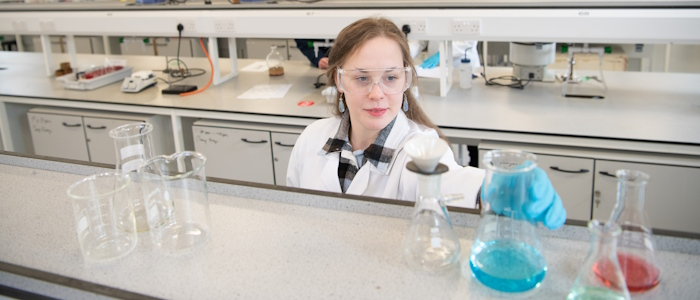Research Impact
At the University of Glasgow's School of Chemistry, our research not only advances fundamental science but also creates meaningful impact beyond academia.
From the development of new technologies and materials to the formation of spin-out companies and industrial partnerships, our work contributes to real-world challenges across sectors including health, energy, sustainability, and advanced manufacturing.
Our researchers collaborate closely with industry, government, and international partners to ensure that discoveries made in the lab translate into societal, environmental, and economic benefits.
Explore some of the ways our research is making a difference:
Quick links
- Research
- Postgraduate research opportunities
- Case studies (EPSRC at the College of Science and Engineering)
Spin-Out Companies
One of the most successful ways WestCHEM has translated research into real-world impact is through the creation of spin-out and start-up companies.
Since 2000, eight such companies have been launched — four of them since 2008 — collectively employing over 50 people and generating significant scientific, societal, and economic benefits. These ventures leverage the School of Chemistry’s world-leading research and intellectual property to tackle challenges ranging from advanced drug discovery to sustainable energy and digital chemistry.
Notable examples include XstalBio, featured in the REF 2014 impact case study, and D3 Technologies (now Renishaw Diagnostics Ltd), which has secured over £12 million in funding.
Through our partnership with the IP Group, an additional £1.2 million is being invested in emerging spin-outs currently in development, supporting the next generation of innovation from Glasgow.
Keltic Pharma
Keltic Pharma is a biotechnology company founded in 2019 by Professor Andrew Tobin, Prof Graeme Milligan, and Professor Andrew Jameson of the University of Glasgow.
With strong roots in the University’s research excellence, including close ties to the School of Chemistry, the company is pioneering new approaches to drug discovery through its proprietary platform, PEPSMOL©. This innovative technology underpins in-house programmes targeting urgent healthcare challenges such as malaria, neurodegeneration (including Alzheimer’s disease), schizophrenia, and severe asthma.
By combining world-leading expertise in molecular sciences with cutting-edge biotechnology, Keltic Pharma exemplifies how academic research in Glasgow’s School of Chemistry translates into impactful innovation with real-world benefits.
Chemify
Chemify, founded by Professor Lee Cronin out of the University of Glasgow, is pioneering a digital future for chemistry.
With close links to the School of Chemistry, the company is transforming how molecules, drugs, and materials are designed, discovered, and accessed. By developing a complete digital chemistry infrastructure — combining a dedicated programming language, advanced robotics, artificial chemical intelligence, and the world’s largest database of validated reactions — Chemify has created a platform that can translate code into molecules and molecules into code.
Its mission is to radically accelerate innovation, improve quality of life, and unlock chemical technologies that were previously unimaginable, demonstrating the global impact of research excellence at Glasgow.
Clyde Hydrogen Systems
Clyde Hydrogen Systems is a spin-out from the University of Glasgow’s School of Chemistry, which is internationally recognised as one of the world’s leading centres for electrochemistry research.
The company is pioneering breakthrough systems for large-scale green hydrogen production, built on its disruptive decoupled electrolysis technology. This innovation delivers a level of flexibility and opportunity not possible with existing electrolysers, positioning Clyde Hydrogen at the forefront of the transition to sustainable energy.
With a rapidly growing team, the company is committed to driving global progress towards a successful green hydrogen future.
Keltic Pharma
Keltic Pharma is a biotechnology company founded in 2019 by , , and Professor Andrew Jameson of the University of Glasgow.
With strong roots in the University’s research excellence, including close ties to the School of Chemistry, the company is pioneering new approaches to drug discovery through its proprietary platform, PEPSMOL©. This innovative technology underpins in-house programmes targeting urgent healthcare challenges such as malaria, neurodegeneration (including Alzheimer’s disease), schizophrenia, and severe asthma.
By combining world-leading expertise in molecular sciences with cutting-edge biotechnology, Keltic Pharma exemplifies how academic research in Glasgow’s School of Chemistry translates into impactful innovation with real-world benefits.
PinPoint Medical
PinPoint Medical, based in the University of Glasgow’s Joseph Black Building, is advancing the future of healthcare diagnostics through cutting-edge biosensing and nano-scale detection technologies. With Dr Affar Karimulla, from the School of Chemistry, serving as Chief Technology Officer, the company is closely connected to the School’s research environment.
Since its founding in 2018, PinPoint has focused on developing high-precision diagnostic tools to improve disease detection, enhance patient outcomes, and tackle critical health challenges — from early cancer diagnosis and rapid infectious disease screening to the growing threat of antimicrobial resistance.
By combining breakthrough detection methods with environmental decontamination solutions, PinPoint Medical is helping to redefine precision diagnostics and safeguard public health worldwide.
Knowledge Transfer and Industry Collaboration
The School has also benefited from substantial support through the EPSRC Knowledge Transfer Accounts (KTA), aimed at accelerating the impact of academic research.
- In 2009, £898k was awarded to 12 academics, with an additional £230k leveraged from industry.
- A standout success was our work in hydrogen storage, leading to:
- €2.2 million in EU funding via the HYPER project
- €1.7 million in matching industrial funding from key European partners
- The project is now developing hydrogen power systems for use in drones and portable recharging devices.

Innovative Solutions for Green Energy Storage
Research by Professor Mark Symes and Professor Lee Cronin has led to the development of decoupled electrolysis of water, which allows the hydrogen and oxygen from electrolysis of water to be produced in separate places, at separate times, and at rates not linked to each other.

Novel PET Imaging Agents for Inflammatory Disease
The group of Professor Andrew Sutherland has developed a radionuclide imaging tracer (compound LW223) for the translocator protein, a key biological target that has the potential to be used for the diagnosis of a wide range of diseases associated with inflammation (dementia, brain cancer, stroke and cardiovascular disease).

Keltic Pharma
Keltic Pharma, founded by University of Glasgow professors, is advancing drug discovery with its pioneering PEPSMOL© platform to tackle urgent health challenges from malaria to Alzheimer’s disease.

Chemify
Chemify, founded by Professor Lee Cronin, is revolutionising chemistry through digital innovation — transforming code into molecules and accelerating the discovery of drugs, materials, and technologies.

Therapeutic protein and vaccine stabilisation technology with global reach across the pharmaceutical industry
A novel self-assembly process, developed at WestCHEM was shown to provide a step-change for stabilising proteins as dry powders.

PolySNAP Computer Software
PolySNAP Computer Software for enhanced processing and classifying of crystallographic and spectroscopic data.

Improved drug discovery and development through use of novel iridium catalysts
Novel iridium catalysts, have introduced a step-change in the ability to label pharmaceutical candidate compounds with radioactive (tritium) or non-radioactive (deuterium) isotopes.

Listen to the trees: Improving the timber supply chain in the UK
WestCHEM research has contributed to the development of acoustic tools that allow construction-grade timber to be identified in the forest.

Illicit drug analysis as a tool to combat global organised crime
Our research is having an impact on the illicit production of synthetic drugs and the emergence of new legal highs.

Computer technology for the accelerated discovery of drugs
A unique computer technology for the accelerated discovery of drugs that “shape-shift” proteins refocuses and expands a US Drug Discovery company.

Multi-million pound sales and efficiency gains through formulation development and process optimisation
Significant economic impact was achieved as a result of research into polymer nanocomposites and their formation, conducted at WestCHEM.

